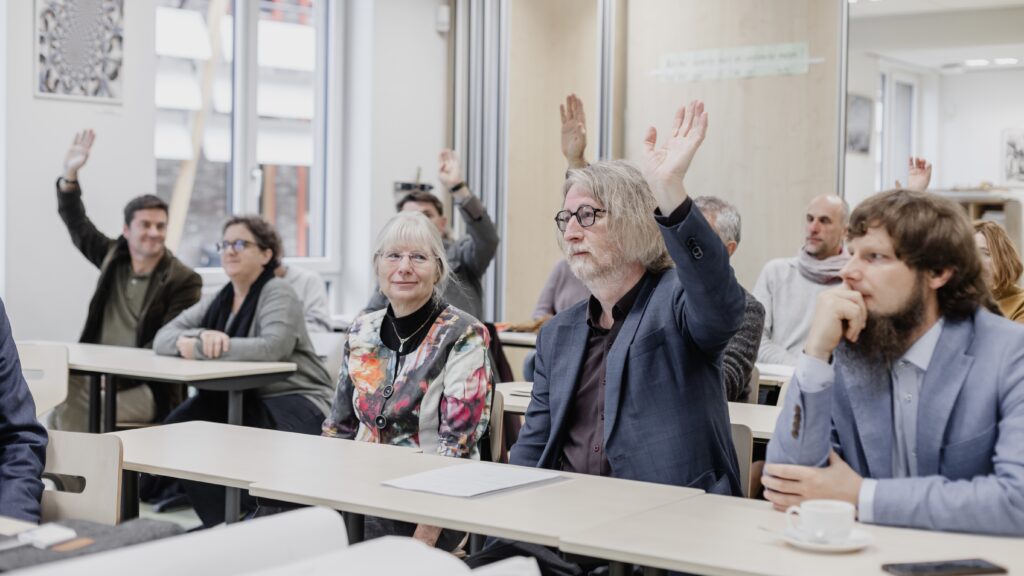Brussels, 15 November 2023
Adopting Generative Principles of Steiner Waldorf Education

Following a two-year drafting process, on the 22nd October 2023 in Eindhoven, our members adopted a renewed paper outlining foundational principles of Steiner Waldorf education.
Outlining the holistic approach strived for in Steiner Waldorf schools
The paper shows how Steiner Waldorf education cultivates socially responsible adults by engaging the whole person in transformative learning experiences. Such experiences create opportunities for intellectual, social, emotional and spiritual learning. Prioritising inclusivity and diversity, a Steiner Waldorf curriculum tailors learning opportunities to different ages and developmental stages, integrating local cultures and legal standards for quality education. The basic understanding of the role of education is to enable full development of each child’s unique potential and thus asks for flexibility in its implementation.
Emphasising pedagogical autonomy and the role of the teacher
In Steiner Waldorf settings, teaching blends arts, crafts, and science. The intertwining of pedagogical methods serves to meet diverse learning needs and depends on a high degree of the teacher’s pedagogical intuition and freedom. Teacher education stresses creativity and contextualising the curriculum, joined with ongoing professional development. School governance in turn prioritises teacher’s responsibility towards delivering quality education, and for this purpose, fostering collaboration among teachers, school leadership, and families to jointly find the best pathways to school success for each learner.
Relating our approach to different education systems
By articulating shared values and principles, the paper fosters cohesion within the Steiner Waldorf education community but also serves as a tool for empowering stakeholders to navigate and advocate for Steiner Waldorf approaches effectively. Thanks to their general nature, the principles can be contextualised within diverse educational frameworks across Europe and serve as an effective communication tool for explaining the somewhat complex nature of the Steiner Waldorf pedagogical approach in a simplified way, using common education terminology.
A question? Please don’t hesitate to contact us!




